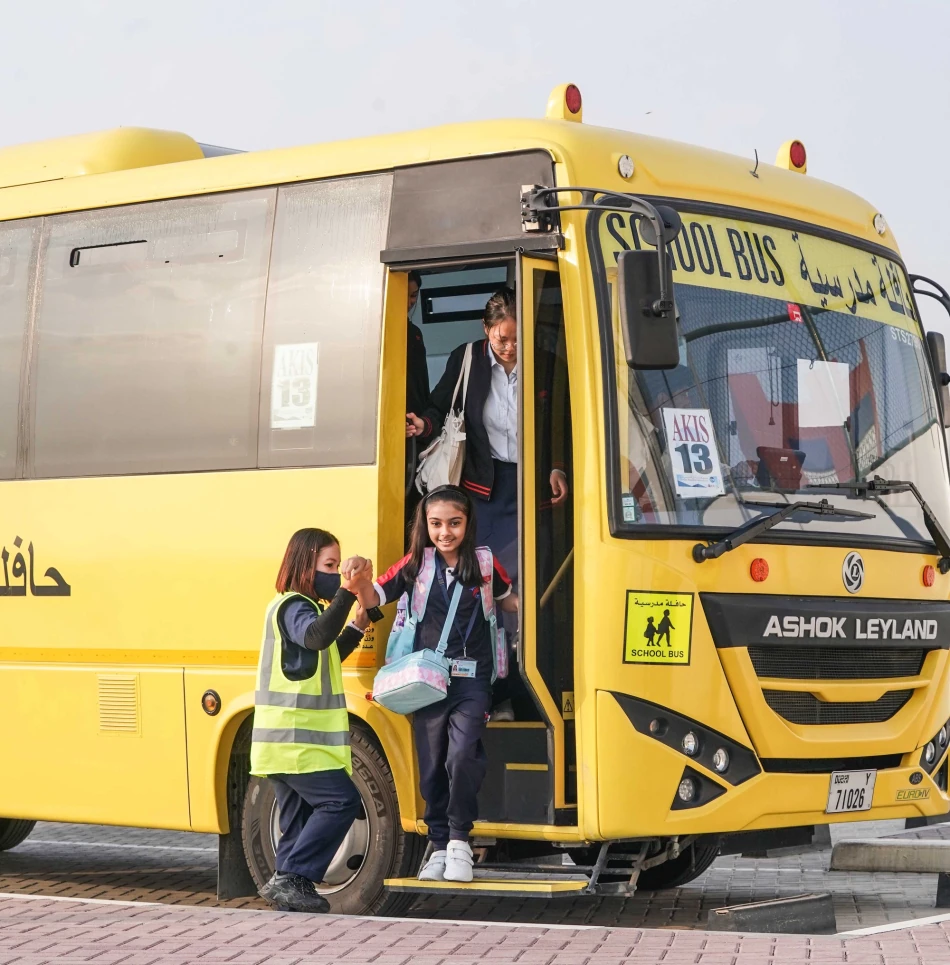
School Bus Protocols Ensure Student Safety and Compliance
UAE Schools Tighten Bus Safety Protocols as New Academic Year Begins
Public and private schools across the UAE have implemented comprehensive regulatory measures to manage school bus operations for the 2025-2026 academic year, emphasizing parent accountability and stricter pickup procedures as part of a broader national strategy to enhance student transportation safety.
Mandatory Parent Presence and ID Requirements
The new protocols require parents or authorized representatives to be physically present when collecting students from school buses, complete with mandatory identification verification. Schools have made it clear that children under 11 years old will not be released without proper guardian supervision, marking a significant shift toward more controlled student handovers.
This approach mirrors safety standards adopted in countries like Singapore and parts of Australia, where structured pickup systems have proven effective in reducing incidents and ensuring accountability in student transportation.
Early Notification and Traffic Management
Schools are demanding advance notification of student absences to maintain smooth bus operations and prevent unnecessary delays. The new system also requires parents to arrive at pickup locations before buses arrive, addressing chronic issues with traffic congestion and chaotic pickup scenes that have plagued many school zones.
Traffic Safety Enforcement
The regulations specifically prohibit random stopping near school buses and emphasize adherence to traffic rules during pickup and drop-off times. This systematic approach addresses growing concerns about traffic safety around schools, particularly as the UAE's expatriate population continues to expand and school enrollment increases.
National Strategy Integration
School administrators have positioned these measures within a broader national framework aimed at creating comprehensive safe learning environments both inside and outside school premises. The emphasis on family-school cooperation reflects the UAE's broader educational modernization efforts, which have consistently ranked among the region's most progressive.
The timing of these enhanced protocols coincides with the UAE's continued focus on educational excellence and safety standards, particularly as the country positions itself as a regional hub for international education and family-friendly policies.
Implementation Impact
The success of these measures will likely depend on consistent enforcement and parent compliance. Schools have concluded their communications with a direct message to parents: adherence to these guidelines directly protects students and ensures daily school journeys remain safe and reassuring.
The regulatory shift represents a proactive approach to student safety that could serve as a model for other Gulf states grappling with similar transportation challenges in rapidly growing urban environments.
Most Viewed News

 Sara Khaled
Sara Khaled






